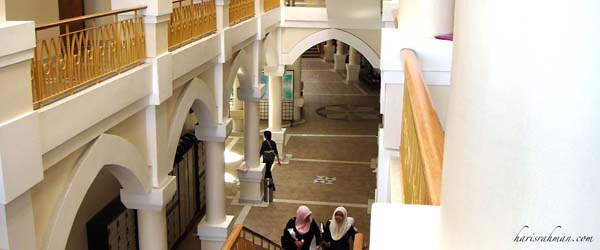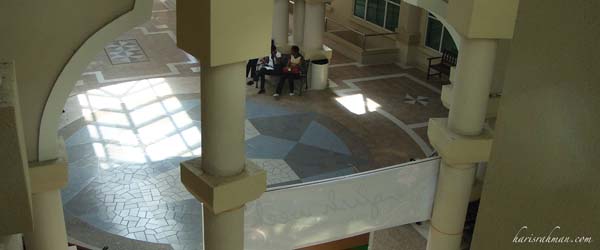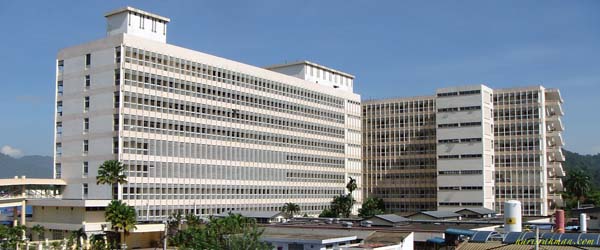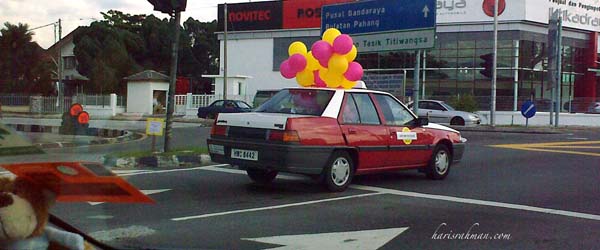Greetings from Ipoh
 Monday, March 23, 2009 at 12:21PM
Monday, March 23, 2009 at 12:21PM  The main entrance to the CollegeThe pickup this morning after breakfast was prompt at 8. The Royal College of Medicine Perak is only 10 minutes away, and there was hardly a morning rush. I was greeted by an officer from the Dean's Office, Cik Sarinah and was then ushered to meet the Deputy Dean, where I spend around 20 minutes chatting. He was interested in my take on the syllabus after learning that I am a Sheffield graduate. RCMP is currently using a syllabus similar to Sheffield while fine-tuning it to the local needs. He retired a couple of year ago as Deputy Director of Health, and his main specialty was Occupational Health.
The main entrance to the CollegeThe pickup this morning after breakfast was prompt at 8. The Royal College of Medicine Perak is only 10 minutes away, and there was hardly a morning rush. I was greeted by an officer from the Dean's Office, Cik Sarinah and was then ushered to meet the Deputy Dean, where I spend around 20 minutes chatting. He was interested in my take on the syllabus after learning that I am a Sheffield graduate. RCMP is currently using a syllabus similar to Sheffield while fine-tuning it to the local needs. He retired a couple of year ago as Deputy Director of Health, and his main specialty was Occupational Health.

The actual academic building was actually awesome. Purpose built for the college with a Moorish design, it certainly is different from UM. Personally however, I think they will struggle in the future when their program expands. The are currently gearing up to producing more than 100 doctors per batch and with only 3 lecture theatres they will need to expand. The facility currently cater for both clinical and pre-clinicals. In some of the attachments, the students will need to travel to district hospitals around Ipoh. The building is just next to Ipoh General Hospital where the students were also attached. Accommodations are rented, not purpose-built. The majority of the students were Malays, mostly MARA scholarship holders.

The examinations I must say were very well run. In the one I was involved in this morning, there were 4 invigilators with 4 other clerks helping out with administration. There were only 89 candidates and everything went without a hitch. Two of my fellow invigilators were UM graduates, a Surgeon and a Psychiatrist. I had a great time chatting with Dr Mohammad the Psychiatrist over coffee. He graduated in the early 80s and had been an academic for nearly 20 years. He was previously seconded to USM before joining UNIMAS in Sarawak. There, he had been doing plenty of freelance work, concentrating in organisational dynamics and psychology. I discussed his view on the lack of personal support for my cancer patients especially amongst Malays. I plan to invite him as a speaker during the upcoming MaxFamily meetings if everyone is keen. I later found out that his wife is an English teacher in MRSM Terendak, my high school. She joined after I left however.
 The Ipoh General Hospital located just next door to the College
The Ipoh General Hospital located just next door to the College
The transport back was again prompt to take me back to Casuarina.
 Examinations,
Examinations,  Ipoh,
Ipoh,  Phase IIIB,
Phase IIIB,  RCMP,
RCMP,  Royal College of Medicine Perak in
Royal College of Medicine Perak in  Diary,
Diary,  Medicine,
Medicine,  Travels,
Travels,  Work
Work 







